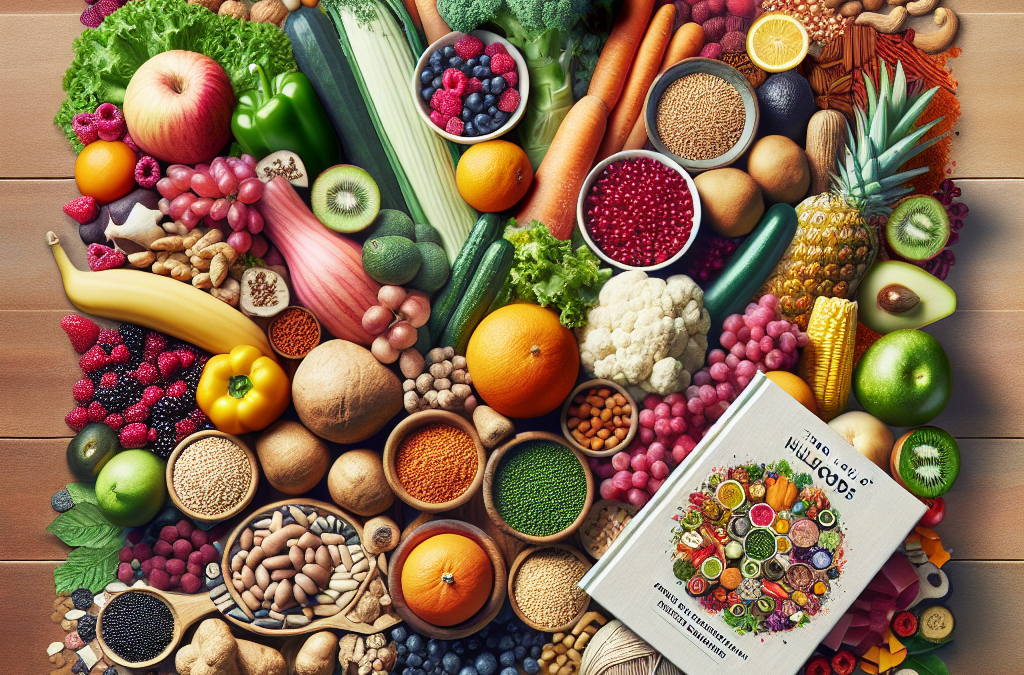Understanding Whole Foods and Their Benefits
What Are Whole Foods?
Whole foods are essentially foods that are unprocessed and unrefined, or processed and refined as little as possible. Think fresh fruits, vegetables, whole grains, nuts, and seeds. These foods provide us with vital nutrients that our bodies need. In my journey, I’ve found that incorporating more whole foods had a huge positive impact on my overall health.
Whole foods are packed with essential vitamins, minerals, and antioxidants that can aid in boosting the immune system. For cancer patients, a strong immune system is paramount. All those colorful fruits and veggies really pack a punch! They are not only delicious but serve as a powerhouse of health benefits.
One of the things I love about whole foods is that they are often found in the simplest form. When you pick up an apple, you know exactly what you’re getting – no added sugars, no preservatives, just pure goodness. It’s like nature’s way of giving back to us.
The Nutritional Powerhouse of Whole Foods
Antioxidants and Phytochemicals
One of the coolest things about whole foods is the abundance of antioxidants. These little warriors fight off free radicals in our bodies that can wreak havoc and contribute to diseases like cancer. Fruits like berries, carrots, and spinach are always on my shopping list because they are loaded with these magical compounds.
Phytochemicals are another aspect I find fascinating. They are natural compounds found in plants that often have protective qualities. For instance, turmeric has curcumin, which is known for its anti-inflammatory properties. By consuming a variety of colorful vegetables, you’re not just filling your plate, you’re arming your body with tools to fight against cancer.
In my kitchen, I try to ensure every meal is a rainbow of colors. It’s not just visually appealing, but it guarantees that I’m loading up on different types of antioxidants and phytochemicals, ensuring diverse protective benefits for my body. It’s kind of like throwing a mini celebration for my health at every meal!
Whole Foods and Immune System Support
The Role of Fiber
Nutrition plays an enormous role in our immune system, and one major player is fiber. Whole foods are often fantastic sources of fiber, which not only helps in digestion but also supports beneficial gut bacteria. Trust me, your gut health has a ripple effect on your overall health.
Whole grains, lentils, and beans are fiber-rich foods that I keep stocked in my pantry. It’s interesting how fiber can regulate our immune response, helping our bodies to effectively respond to infections and even illnesses like cancer.
Another thing I’ve noticed is how a fiber-rich diet sort of keeps things running smoothly, if you know what I mean. A happy gut can help with reduced inflammation and a properly functioning immune system, which is something I need to be on top of, especially when health is a priority.
Whole Foods and Reduced Inflammation
Inflammation Connection
Many diseases, including cancer, are linked to chronic inflammation in the body. This is where whole foods make a big difference. Certain foods have anti-inflammatory properties that can help lower the body’s inflammatory response. I’ve swapped out many processed snacks for walnuts, almonds, and berries to manage my inflammation better.
Get an Amazing Discount on the Best Certified Organic Whole Food Supplement!
It’s incredible how things like olive oil and fatty fish (like salmon) can be so beneficial. Those omega-3 fatty acids are not just a buzzword in health; they really do help combat inflammation. Incorporating these into my diet has had a noticeable impact on my energy levels and overall wellness.
And let’s not forget the importance of hydration! Whole foods tend to have natural water content, which helps. Pairing water-rich fruits and veggies into my meals and snacks has helped me maintain hydration, another essential factor in managing inflammation.
Incorporating Whole Foods into Your Diet
Practical Tips for Transitioning
Making the leap to a whole foods diet can be daunting, but I’ve found that small, gradual changes work wonders. Start by adding one whole meal or snack at a time. Even swapping out one processed snack for a piece of fruit can kickstart a healthier habit.
I also recommend exploring local farmers markets. The fresh produce not only tastes amazing, but it encourages a connection with your food. Knowing where your food comes from makes it feel more personal and meaningful. Plus, supporting local farmers is always a win!
Experiment! Cooking with whole foods should be a fun adventure. Try new recipes and explore different cuisines that emphasize whole ingredients. Over time, you’ll find that embracing whole foods isn’t just good for your body; it’s enjoyable too!
Frequently Asked Questions
1. What are some examples of whole foods?
Whole foods include fresh fruits, vegetables, whole grains, nuts, seeds, and legumes. They are minimally processed and retain their natural nutrients.
2. How do whole foods help in cancer prevention?
Whole foods are rich in antioxidants, vitamins, and minerals that can support the immune system and reduce inflammation, which plays a role in cancer prevention.
3. Can I still enjoy my favorite snacks on a whole foods diet?
Absolutely! There are healthier alternatives for snacks. For example, instead of chips, you might try air-popped popcorn or sliced veggies with hummus.
4. How can I increase my fiber intake?
You can increase fiber by incorporating foods like legumes (beans and lentils), whole grains (brown rice, quinoa), and a variety of fruits and vegetables into your meals.
5. Is it difficult to switch to a whole foods diet?
It can be challenging at first, but taking small steps, experimenting with new recipes, and focusing on one meal at a time can make it easier and more enjoyable.





